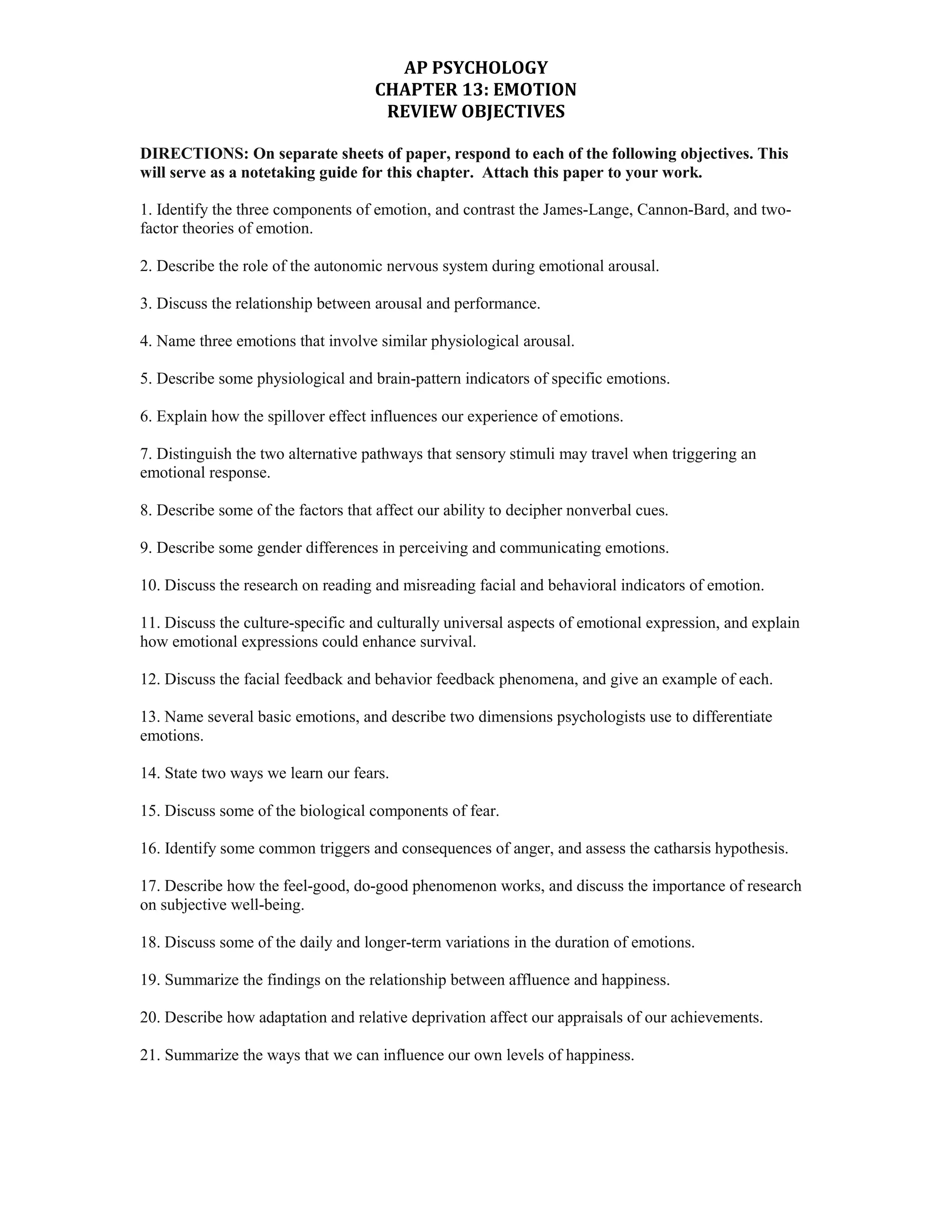This document provides 21 objectives for taking notes on a chapter about emotion. The objectives cover topics such as the components of emotion, theories of emotion, the autonomic nervous system's role in arousal, the relationship between arousal and performance, physiological indicators of specific emotions, factors that affect perceiving emotions, basic emotions, learning fears, biological components of fear, triggers and consequences of anger, the facial and behavior feedback phenomena, variations in emotion duration, relationships between affluence and happiness, and ways to influence happiness levels. Students are instructed to respond to each objective on separate sheets of paper and attach them to this document.
